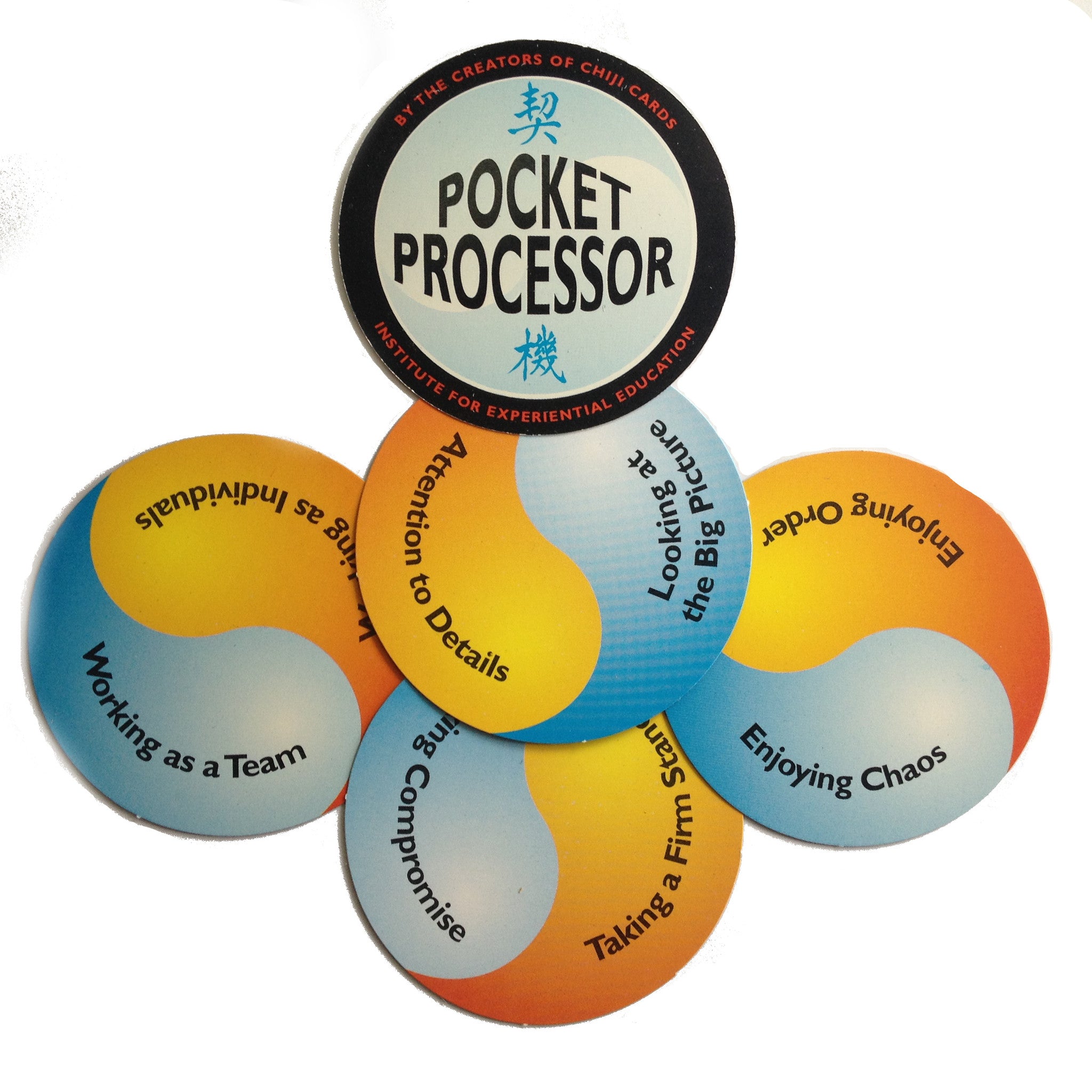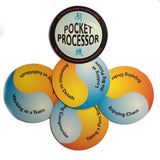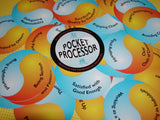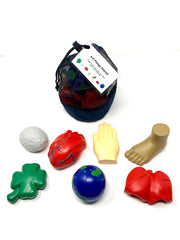Pocket Processor
The Pocket Processor is a processing tool based on the theory of the yin and the yang. This theory describes two ends of a continuum, with each end having the seed of the other. This deck of cards is round in shape, like the yin/yang and the statements are printed on the opposite sides of the yin/yang. (See picture.) This is a great tool to use with youth populations as well as adult groups. It works well with all age groups. It's a great staff training tool as well.
Basic Use: The most basic use of the Pocket Processor is to debrief an activity by spreading all cards out and asking each participant to choose the card that best represents some kind of progress made (either individual or group progress). Then allow each person to explain his or her choice (e.g. "I chose the competing/cooperating card because I am naturally very competitive, but I successfully fought off my desire to complete the initiative faster than the other group.")
Here is a testimonial from one of our customers:
"You know how you sometimes get that group of adolescent girls that are just so uncomfortable with each other; they really don't say much and their participation seems forced and half-hearted? I had this group recently. For some reason, they just didn't feel safe letting their guards down with each other - or with me. I decided to pull out the Pocket Processor. I laid a rope on the ground, the middle of the length was neutral ground, for each pair of words, they could choose to move from the neutral position in either direction along the rope indicating to what degree the word described themselves and how they were feeling. With each pair of words, the girls became more engaged in the process. At first, we paused after each pair to see where the girls landed; as we progressed, they started volunteering information about their choices. We played for about 20 minutes and they discovered they had many shared views and feelings. The Pocket Processor created a safe self-disclosure process and allowed them to take those critical first steps toward bonding." ~Jennifer Steinmetz, Challenge Course Director, Rocky Top Therapy Center
Client Testimonial: "Just weeks after attending the Experiential Facilitation training in Littleton, I was able to put the Pocket Processor activity to use at my team’s monthly staff meeting. I used a piece of tape to create a line down the middle of the floor. We have a team of 11, so the activity was perfect for me to facilitate while the 10 other staff, including my manager, participated. I carefully selected about half a dozen cards that focused on different preferences and areas of comfort. Using my own experience as a participant, I asked my team which of the two options most reflected them. Occasionally I would inquire further as to why someone answered a certain way or ask the group if they were surprised by so-and-so’s answer. After going through the cards, I had the group do pair-and-shares to debrief. First was a back-to-back, then comment on what you noticed, followed by changing partners and indicating something that went well or that you liked about the activity (with a high-five at the end!). Finally, we sat down as a group to perform a debrief on the activity as a whole. Several people commented on how insightful the activity was and even a usually quiet, observational coworker expressed how they enjoyed sharing and learning about their co-workers. Awesome team experience! ~Jennifer Kutch, Santa Clara County, San Jose, California






